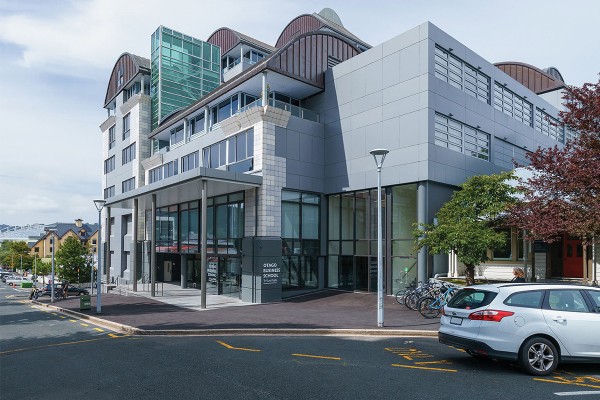On April 14, Amnesty Youth Otago hosted a dynamic forum in the Business School – titled “People Power Movement: Youth Criminal Justice and Youth Activism”. The talk drew students, advocates, and change-makers into a discussion on the future of justice and equity.
Amnesty International Aotearoa New Zealand is the national branch of a global movement spanning over 150 countries and territories, campaigning to end abuses of human rights. Jacqui Dillion, who featured at the event, is their recently appointed Executive Director. She’s studied at four different universities, achieving two first-class Master’s. That’s one impressive LinkedIn. She was poised alongside People Power Manager Margie Taylor, who frequently uses her voice to support and empower Amnesty’s campaigns and advocates. Lola Colbeck, the Student Politics Association’s Social and Welfare Rep, described the two as “an electric pair”.
The angle of the forum was to find new, and more modern ways, to encourage student involvement in broader societal issues and to empower them to make a difference. Attendees were welcomed (and confronted) with the powerful question, “What is your vision for humanity?” Answers ranged from eliminating economic inequality to advancing global liberation efforts in the Middle East and Africa. And with that, the tone was set for an evening of hope, critical thinking, and unfiltered discussion.
The Business School quickly transformed into a hub of shared ideals. As Jacqui reflected, “These are all achievable. However, power and wealth are now being weaponised beyond traditional warfare.” She went on to link global democratic backsliding to issues here at home, adding, “An obsession with economic growth is eroding respect for individual rights. This is a trickle-down effect we’re seeing post-US elections – an erosion that is visible in Aotearoa, too.”
The conversation turned to topical tensions around “wokeness” in New Zealand, particularly in education and youth rights. Winston Peters’ dismissal of Sexual Health Education Guidelines as “too woke” sparked concern among students and educators and was a hot topic for those present. It was also an issue that had been raised by Thursdays in Black when Chippy visited Dunedin. Again, Jacqui linked this discussion back to a larger global narrative: how the media, often monopolised and politicised, is a barrier for future progress. “We’re witnessing the collapse of a duty of care that should be foundational, especially toward our tamariki,” she said. “This is where Amnesty is stepping up: demanding prevention, education, and a recommitment to rights.”
The forum also took time to recognise activism in action – from regional youth forums, to mentorship programs. Amnesty Youth Otago’s High School Liaison Nikau, and Co-President Jomana have made major waves within the schools of Dunedin, visiting a number of different high schools to start up Amnesty groups. These groups encourage young leaders to get involved in human rights and politics through organising events, signing petitions, and overall contributing to the conversation about broader societal issues. These groups are often student-led, though usually also have a teacher coordinator – like Bronwyn Thomson from Otago Girls’, who was in attendance with a group of her students.
Jacqui and Margie both highlighted the importance of the arts in allowing the human rights space to become more accessible. Inspired by their call to action, Amnesty Youth Otago and POLSA are hosting a showcase on this very topic on May 14th in the Main Common Room between 5pm and 8pm. This is open to anyone to showcase their art/writing/media that has a focus on human rights, politics or identity. Entries can be made through the link available on Amnesty Youth Otago’s Instagram.
The forum closed with a roadmap for the future. Amnesty's Strategy 2030, an outline of what areas of human rights the movement will prioritise, calls for bold, preventative action in the face of compounding global crises. As Jacqui reminded the crowd, “silence is compliance”. As the night came to an end it was clear that the forum wasn’t just a talk. It was an invitation to share ideas, fight back, and make a difference. It was a call to action, one that many in the room seemed ready to answer.







